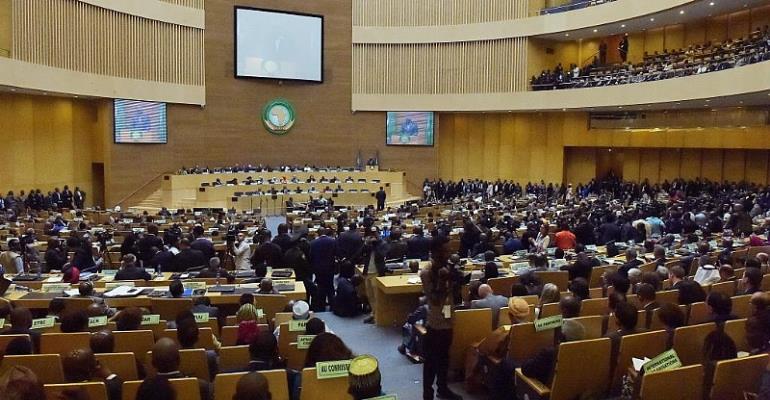
The African Union is to try and reduce its dependencey on foreign donors. Speaking at the recent meeting of the African Union, President Paul Kagame stressed he wants to make Africa stronger, which means weaning the AU off foreign contributions.
The 55 member states also agreed on imposing sanctions on countries late in paying their membership dues. This means that should a member abstain from paying its contributions for two years, it will be excluded from participating in the organisation's activities, such as the African Union assemblies.
Previously, the grace period was five years. This has now been reduced to two years.
Donors are already funding 59 per cent of 2019's total budget of 596 million euros. As of the end of 2018 and AU's financial year, only half of the 55 member states have paid their dues.
In the past, state members were lenient in applying sanctions. "Excluding a member state is a very unpopular measure" says Liesl Louw-Vaudran, a researcher with the International Security Studies . She is concerned that some states may still be reticent.
"[Applying the sanctions] is the only way that the AU can reach its goals of self-financing and being less reliant on outside partners."
AU Peace Fund
The summit also launched the Peace Fund which will be dedicated to financing responses to crises in Africa before they burst into full blown conflict. The idea is to defuse a crisis through mediation and diplomacy.
The Peace Fund needs some 350 million euros to be operational and so far, according to Donald Kaberuka who led the project, the fund only raised 60 million euros.
The reforms also include streamlining the AU Commission from the existing eight to six commissions. There will also be only one full AU summit per year instead of two as these are very costly event.
Objections to reforms
Some reform proposal did not go through. The majority of the member states rejected the plan of giving the head of the African Union commission the power to appoint their own deputy and commissioners.
Liesl Louw-Vaudran believes that this plan would have helped the AU to be more efficient:
"In order for the AU to operate efficiently, we need the chairperson to be able to appoint his or her cabinet, like a prime minister or president. So, if there is underperformance, the chairperson cannot do much about."
Follow Liesl Louw-Vaudran on Twitter @Lieslvaudran
Follow Zeenat Hansrod on Twitter @zxnt



















Facebook
Twitter
Pinterest
Instagram
Google+
YouTube
LinkedIn
RSS